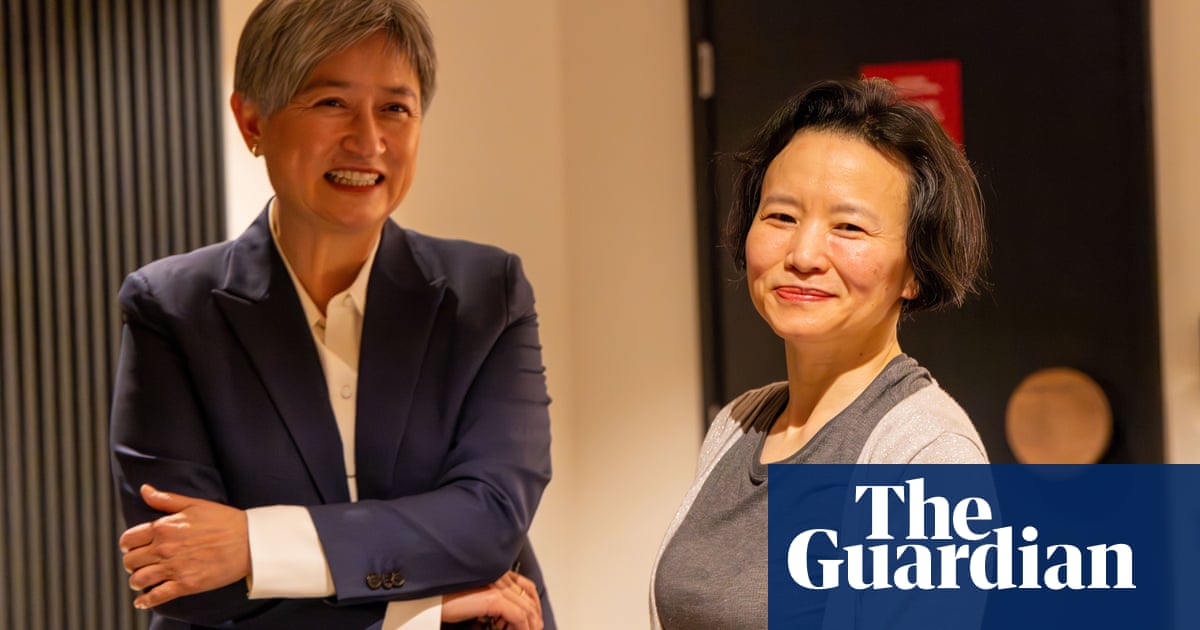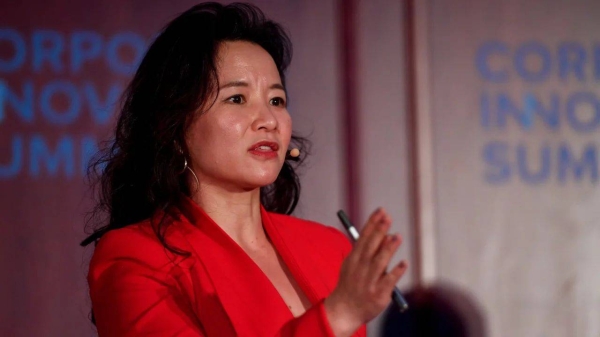
Two months before she was detained by Chinese authorities on opaque national security grounds, the Australian journalist Cheng Lei was catching up with her colleagues from the state-owned China Global Television Network (CGTN) for dinner.
Gathering at a Japanese restaurant in Beijing, the group enjoyed multiple courses and a few drinks, while sharing banter about work.
The 13 June 2020 dinner was the last time Tadek Markowski, then an assignment editor at the English language channel CGTN, saw his colleague in person before her world was turned upside down. Cheng’s mood was “very light”, Markowski recalls, and there was no indication that she might soon be in the security agencies’ crosshairs.
“Oddly enough, the topic of Hong Kong came up, and I knew that the channel had been referred to [regulator] Ofcom in London for what was perceived to be biased coverage,” Markowski says.
In the discussion that followed, Markowski suggested China was “going way too hard, way too soon” in its crackdown in Hong Kong.
“But Cheng Lei, for her part, was adamant about the fact that Hong Kong was now back in the fold of China, it’s just another province, and that the rest of the world shouldn’t expect that Beijing would go on giving it preferential treatment for ever.”
Part of what made Cheng a good journalist, says Markowski, was that she was able to look at any given story from both sides. Born in China, the Australian citizen was “lucky to be able to span cultures”.
A lover of Vegemite and Aussie Rules football – she follows the Richmond Tigers – Cheng would attend the Anzac Day service with her children and partner each year. The annual services were organised by the Australian and New Zealand embassies in Beijing and brought expats together.
It was, Cheng’s former colleagues say, “a complete shock” when they later read in the foreign press that the anchor of the global business program had been detained amid growing tensions between Australia and China.
“It was like a bombshell,” says Markowski, who had been with CGTN and its predecessor channel since 2013 but moved back to Australia in September 2020.
“And it reverberated through the newsroom – a kind of quiet descended on the planning desks, the assignment desks, the set. Nobody was quite sure how to react to the news.”
No contact with her children
Friday marks the first anniversary of Cheng’s detention. Cheng, who is now 46, was held for the first six months in a form of coercive custody known as “residential surveillance at a designated location”.
She was formally arrested in February this year on “suspicion of illegally supplying state secrets overseas”, according to Chinese authorities, but no further details about the accusations or any potential court dates have been released.
Australian consular officials are conducting monthly visits with Cheng by video link, most recently on 26 July. Cheng is said to be doing “OK” – but she has not been given an opportunity to speak with her two children, now aged 10 and 12, throughout the past year.
Cheng’s children are staying with their grandmother in Melbourne.
The Australian government and the opposition say they have concerns about Cheng’s detention and welfare.
“We are particularly concerned that one year into her detention, there remains a lack of transparency about the reasons for Ms Cheng’s detention,” the Australian foreign minister, Marise Payne, says.
Labor’s foreign affairs spokesperson, Penny Wong, says: “Our thoughts are with Ms Cheng, her friends and family – particularly her two children.”
On the anniversary of her detention, some of Cheng’s former colleagues have spoken out to offer an insight into the “lovely”, “caring” person they know and to request the Chinese government show compassion in this case.
Lisa Oake, a journalist who worked with Cheng at CNBC Asia in Singapore, describes her former colleague as “an absolute class act” and “one of the loveliest people to work with that I’ve ever had the pleasure of encountering”.
“Right from the beginning, she always had this very quiet, gentle way about her,” Oake says.
“I never, ever heard her raise her voice or get angry with anyone – and sometimes in newsrooms that’s not an easy thing to accomplish.”
‘Anything I can do to help, let me know’
Oake adds that her generous colleague was “always really great to talk to about being a working mum, and being a single working mum”.
“If she knew that you were exhausted and, for example, you were up all night with a kid with a fever, she’d be like, ‘Hey, do you want me to do this extra hit [live cross] for you into Europe? Anything I can do to help, let me know’.”
The authorities’ accusation against Cheng “just seems really beyond the realm of possibility for the woman that I know”, Oake says.
Moira Coops, a makeup artist and wardrobe adviser, worked alongside Cheng at various times between 2003 and 2011.
“I warmed to her immediately,” said, describing her as “super-super smart, funny, and just very kind”. Coops found Cheng to be level headed and someone who “cares about issues in the world and cares about people”.
Cheng had the credentials to cover business and market news: she had earlier studied for a Bachelor of Commerce at the University of Queensland and gained recognition in Australia as a Certified Practising Accountant (CPA). She had the charm and experience to secure high-profile guests including Bill Gates and other leading business figures.
Coops remembers being “very shocked” when she heard Cheng had been detained. She can’t imagine Cheng ever doing anything that would put her herself in danger or endanger her children.
“I just don’t get it. I just pray for her. I really do. I’d love to know that she’s OK, and see her and see her gorgeous smile.”
Markowski worked with Cheng in her most recent position, when she presented a business program on the English-language station CGTN.
He describes Cheng as “a no-nonsense person” with a dedication to her craft and a self-deprecating sense of humour who was “always smiling”. Markowski – now living in Queensland – says there is “no reason or rhyme” to the allegation against her.
Leading figures ask for compassion
Markowski, Oake and Coops are among nearly 60 people to have signed a statement of support for Cheng, published on Friday.
The signatories – who include former colleagues, prominent Australian journalists and media industry leaders – say they “stand with Cheng Lei as a journalist and Australian citizen” and are calling for her “to be reunited with her children”.
Peter Greste, an Australian former Al Jazeera journalist who was himself detained for 13 months in Egypt until early 2015, and Cheng’s former partner and businessman Nick Coyle are also among the supporters.
“We have known her variously as a friend, colleague, mentor, journalist or fellow Australian,” says the letter, coordinated by Annelise Nielsen, a former colleague of Cheng’s and now Sky News Australia’s Washington Correspondent.
The letter asks for “compassion and reason from the Chinese government in dealing with her case”. It was signed by the veteran political journalist Michelle Grattan; the president of the Federal Parliamentary Press Gallery, David Crowe; the ABC’s David Speers, Laura Tingle and Michael Rowland; and Guardian Australia’s Katharine Murphy and Amy Remeikis.
The presidents of the National Press Club in Washington and the National Press Club Journalism Institute said in a separate statement: “China has tried to make Cheng disappear, but the world has not forgotten about her or the several dozen other reporters unjustly jailed in China.”
In yet another expression of support, the Committee to Protect Journalists said the claims against Cheng “lack all credibility” and China “should stop using journalists and others as pawns in conflicts with other nations”.
In Canberra, the board of the National Press Club of Australia said it regarded the treatment of Cheng “as a grave threat to an Australian journalist”.
Shrouded in secrecy
The Guardian contacted the Chinese embassy in Canberra on Tuesday to ask if it could provide an update on Cheng’s case and her welfare. It did not respond to the questions, but in other recent cases has urged the Australian government to “respect China’s judicial sovereignty”.
This week China jailed Canadian entrepreneur Michael Spavor for 11 years on charges of spying, while a court rejected the appeal of another Canadian, Robert Schellenberg, whose prison term in a drug case was abruptly increased to death.
“We’re very concerned about Cheng Lei’s welfare and the fact is we know very little about her current circumstances,” says Elaine Pearson, the director of Human Rights Watch in Australia.
“China’s legal system when it comes to national security crimes is like a black box of secrecy where basic rights are routinely ignored.”
Cheng’s former colleagues say she has “a deep reservoir of grit and determination” – which is no doubt being tested at present – but they really want her to know she is not forgotten.
“It’s weird,” Coops says. “I keep sending her messages on Facebook. Of course, she’s not going to see them, but I’m hoping one day, she will read them, that she’ll be OK, you know, and she will see that we all cared about her.
“I hope and pray she’ll be released one day and she gets to see her kids.”












